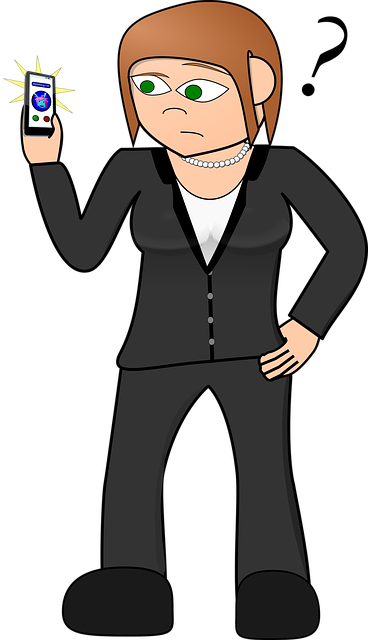In Pennsylvania, businesses using autodialers face stringent TCPA and state regulations. Autodialer attorneys are essential guides through consent requirements, do-not-call lists, data privacy laws (GDPR, CCPA), and consumer protection. Their expertise ensures compliance, avoids legal pitfalls, and protects consumer rights, fostering ethical telemarketing practices while leveraging auto-dialer technology effectively.
In the digital age, businesses increasingly rely on autodialers for marketing and communication. However, navigating the legal landscape surrounding their use can be complex, especially in Pennsylvania. This article guides you through the critical aspects of autodialer regulations, legal considerations for businesses, consumer protection laws, and the pivotal role of attorneys in ensuring ethical practices. By understanding these elements, businesses can leverage autodialers effectively while adhering to Pennsylvania’s strict guidelines. Autodialer attorneys play a vital role in this process, offering expertise tailored to Pennsylvania’s unique legal landscape.
Understanding Autodialer Regulations in Pennsylvania: A Comprehensive Overview

In Pennsylvania, the use of autodialers—automated telephone dialing systems—is subject to specific legal regulations designed to protect consumers from unwanted phone calls. These rules are essential for businesses and organizations employing autodialer technology to understand, as non-compliance can lead to significant legal consequences. Pennsylvania’s laws regarding autodialers are comprehensive and cover various aspects, including consent, do-not-call lists, and the timing of calls.
Autodialer attorneys in Pennsylvania play a crucial role in guiding businesses through this complex legal landscape. They ensure that companies adhere to state regulations by drafting and reviewing automated call policies, training staff on compliance procedures, and representing clients in case of legal disputes or investigations related to autodialer usage. Understanding these regulations is paramount for any entity utilizing automated dialing systems to maintain a compliant and successful business practice.
Legal Considerations for Businesses Using Autodialers

When businesses in Pennsylvania opt to utilize autodialers for marketing or customer communication, they must navigate a complex legal landscape to ensure compliance with regulations designed to protect consumers from unsolicited calls. The primary focus lies on adhering to the Telephone Consumer Protection Act (TCPA), a federal law that regulates automated dialing systems and text messaging practices. Businesses must obtain explicit consent from recipients before initiating any automated calls or texts, ensuring clear opt-out mechanisms are in place.
Further legal considerations involve state-specific regulations, such as Pennsylvania’s Do Not Call Registry, which prohibits automated calls to individuals listed on the registry. Businesses also need to be mindful of data privacy laws like the General Data Protection Regulation (GDPR) and California’s Consumer Privacy Act (CCPA), especially when collecting or processing consumer information through autodialer campaigns. Engaging the services of experienced autodialer attorneys in Pennsylvania can help businesses navigate these complexities, ensuring they remain compliant while effectively utilizing autodialing technology.
Navigating Consumer Protection Laws and Autodialing Practices

In the realm of autodialer use, consumer protection laws play a pivotal role in ensuring fair practices. For businesses utilizing automated phone systems, adhering to these regulations is non-negotiable. Pennsylvania, known for its robust legal framework, has specific guidelines regarding telemarketing and autodialing, with an emphasis on protecting consumers from unwanted or deceptive calls.
Autodialer attorneys in Pennsylvania are instrumental in guiding businesses through this complex landscape. They help ensure that companies respect consumer privacy, obtain proper consent, and comply with do-not-call lists. By understanding and navigating these legal aspects, businesses can avoid costly fines and maintain a positive public image.
The Role of Attorneys in Ensuring Ethical Use of Autodialers

In the world of telemarketing and auto-dialer technologies, attorneys play a pivotal role in ensuring ethical practices and compliance with legal frameworks. With the rise of autodialers in Pennsylvania, legal professionals are essential in guiding businesses to navigate this complex landscape. These experts can help establish guidelines and policies to safeguard consumer rights while leveraging the benefits of automated calling systems. By providing strategic counsel, attorneys ensure that companies adhere to regulations regarding consent, do-not-call lists, and privacy, thereby avoiding potential legal pitfalls and reputational damage.
Autodialer attorneys in Pennsylvania assist businesses in understanding the legal implications of their marketing strategies. They offer insights into consumer protection laws, ensuring fair practices when using auto-dialers for outbound calls. Through their expertise, they can help design and implement compliance programs, train staff, and draft contracts, thereby fostering a culture of ethical telemarketing within organizations. Their guidance is invaluable in preventing abuse or misuse of autodialer technology, ensuring it remains a powerful tool for effective communication while maintaining a customer-centric approach.






